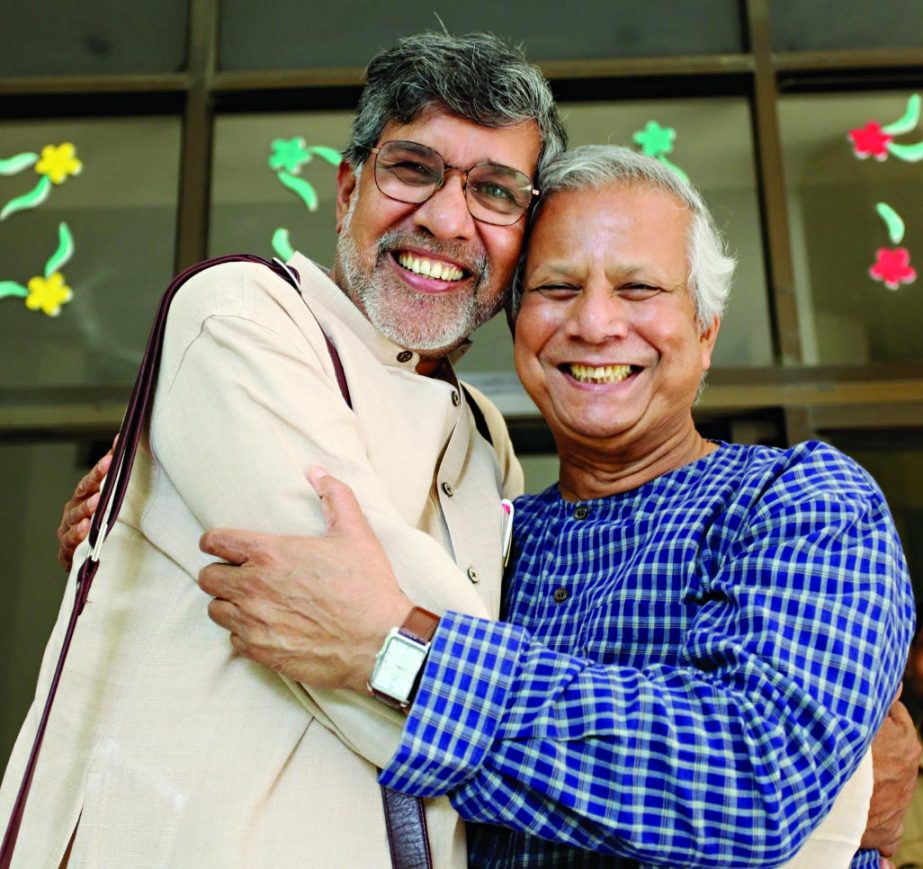
BSS, Dhaka :
Nobel peace prize winner Kailash Satyarthi yesterday described financing as one of the major challenges in the education sector in the developing countries leaving millions of children out of schools.
“Many developing countries located in Africa and Asia face physical challenges such as kidnapping and killing particularly for girl students….. Alongside financial problems, these physical challenges are shattering rights to education of many children in those countries particularly war-torn region,” he told a conference on “Right to Education” in the LGED auditorium here.
Campaign for Popular Education (CAMPE) and Palli Karma-Sahayak Foundation (PKSF) jointly organized the conference.
Kailash said fundamentalism also has emerged as the biggest challenge in some Asian and African countries and they are discouraging
educational campaign particularly for female education meaning large number of girl children have remained out of schools.
“Fundamentalists are against expansion of education as they know education has power that will not allow fundamentalism in society,” he observed.
Referring to Indian constitutional amendment of 2002, the Nobel laureate said educational activists fought for a long time to translate the constitutional amendment for making free and compulsory education as fundamental right of people.
In 2009, Right to Education Act also was enacted in India, which added legal strength and time-bound targets for promoting educational campaign, he added.
The Right to Education law of India has granted education for children up to secondary level, he said adding, “Despite some successes in legal frameworks, a large number of children are still out of schools in India.”
Kailash described child marriage as a global phenomenon as developing countries around the world are suffering from the social menace. “Unfortunately, South Asia is one of the highest child marriage prevalence region in world. A huge number of child marriage incidents are recorded in Bangladesh every year,” he added.
At the conference, Education Minister Nurul Islam Nahid said alongside public financing, private investment is a must to make educational campaign a success but that should be done for solely a supportive purpose.
Nobel peace prize winner Kailash Satyarthi yesterday described financing as one of the major challenges in the education sector in the developing countries leaving millions of children out of schools.
“Many developing countries located in Africa and Asia face physical challenges such as kidnapping and killing particularly for girl students….. Alongside financial problems, these physical challenges are shattering rights to education of many children in those countries particularly war-torn region,” he told a conference on “Right to Education” in the LGED auditorium here.
Campaign for Popular Education (CAMPE) and Palli Karma-Sahayak Foundation (PKSF) jointly organized the conference.
Kailash said fundamentalism also has emerged as the biggest challenge in some Asian and African countries and they are discouraging
educational campaign particularly for female education meaning large number of girl children have remained out of schools.
“Fundamentalists are against expansion of education as they know education has power that will not allow fundamentalism in society,” he observed.
Referring to Indian constitutional amendment of 2002, the Nobel laureate said educational activists fought for a long time to translate the constitutional amendment for making free and compulsory education as fundamental right of people.
In 2009, Right to Education Act also was enacted in India, which added legal strength and time-bound targets for promoting educational campaign, he added.
The Right to Education law of India has granted education for children up to secondary level, he said adding, “Despite some successes in legal frameworks, a large number of children are still out of schools in India.”
Kailash described child marriage as a global phenomenon as developing countries around the world are suffering from the social menace. “Unfortunately, South Asia is one of the highest child marriage prevalence region in world. A huge number of child marriage incidents are recorded in Bangladesh every year,” he added.
At the conference, Education Minister Nurul Islam Nahid said alongside public financing, private investment is a must to make educational campaign a success but that should be done for solely a supportive purpose.

